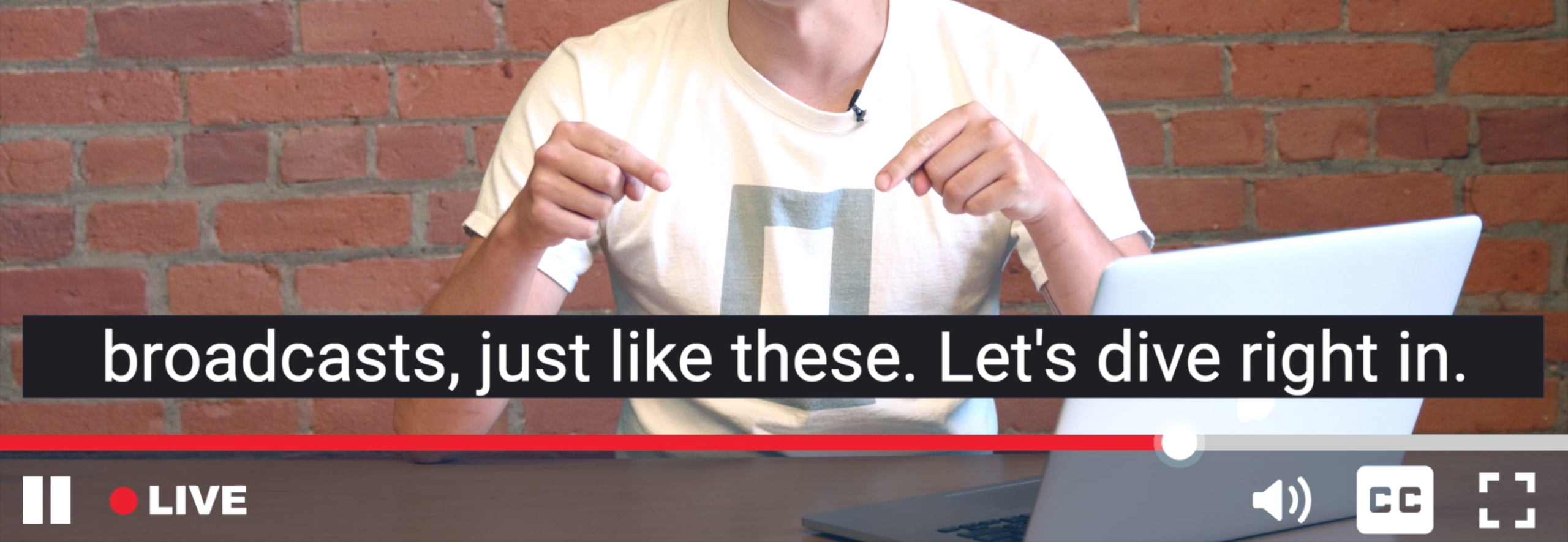VIDEO
Products
Streaming
Deliver flawless live video to any audience, anywhere
OTT Apps
Launch and monetize your own branded TV & mobile apps
Spark Encoder
Tap into hardware encoding that's compact and powerful
Broadcaster App
Go live straight from your phone or tablet with studio-quality control
Features
BoxCast Flow
Ensures smooth playback even on shaky networks
Sharing
Instantly clip, share, and amplify your broadcasts
Producer
Create professional streams right from your browser
Third-Party Encoders
Use the gear you love with our support of RTMP and SRT
AUDIO
Mixing Station Anywhere
Control your digital mixer in real time from anywhere
Mixing Station Web
Mix, manage, and monitor live audio in a browser from anywhere
Compatible Mixers
Connect your digital mixer to Mixing Station and Mixing Station Web
INDUSTRIES
House of Worship
Reach and engage your congregation wherever they worship
Sports
Stream games with professional quality for fans everywhere
Local Government
Bring transparency and connection to your community broadcasts
Business
Power your corporate events, webinars, and live streams
LEARN
Blog
Insights, trends, and tips for the audio/video community
Tech Tips
Quick how-tos and deep dives on the latest streaming technology
Guides
Essential tips and expert strategies to expand your reach
Newsletter
Stay up to date with product news, best practices, and more
Podcast
Hear stories and strategies from our customers and experts
DISCOVER
Customer Stories
Explore real-world success stories to inspire your organization
Events
Join us at an upcoming conference and meet with our team
Webinars
Get all the details and register for our next live webinar
About Us
Discover our company's mission, values, and team story
BoxCast Features + Updates, Live Streaming Software

BoxCast Team • August 23, 2019
Captioning your live video is an important step in making your content more accessible to your viewers. It also may be important to meet compliance standards for your organization.
More than 30 million Americans live with a form of hearing loss. Millions of others are illiterate, learning to read, or use English as a second language. More likely than not, some of these people are your viewers.
In this post, we'll address your options for adding captions to your broadcast. Then we'll talk about how we do it at BoxCast.
First, let's define captions. Captions is the overarching term referring to the time-stamped transcript of a video. They are often presented in the form of closed captions, which can be be turned on or off by the viewer. The term, 'subtitle,' while often used interchangeably, actually only refers to captions that translate dialogue.
Think back to closed captions you've seen on broadcast television. In those situations, the captions often lagged behind the actual audio. The reason for that is that there is usually a human rapidly transcribing the audio as it occurs.
Recently, AI and machine learning developments have finally delivered an automated alternative. Software can now interpret live streamed audio and deliver live captions perfectly in sync with the audio.
Do they work? Yes.
Are they perfect? No.
The first few versions of automated live captions were pretty inaccurate, actually. Since then, they've improved drastically-- enough so that they should be seriously considered in comparison to other forms of live captions. As is the case with anything built on machine learning, this technology will continue to improve over time.
Many of the captions you see today are still captured manually. However, more and more organizations are switching over to automated captioning systems.
When considering adding live captioning to your video, you should consider affordability, editability, and compliance.
The price range for live captioning is very expensive. Ultimately, affordability ends up being one of the top benefits of automated live captioning.
With a manual caption process, captioning can get pricey fast. Whether you have an in-house solution or turn to an external service, people's time is expensive. At the very least, you'll be looking at least $1/ per broadcast minute for an external service or up to $50,000 in equipment (not including staff time) for an in-house manual solution.
If price is a big factor for you, manual captioning won't be an option. You should look to a service that provides automated captioning.
If you do opt for an automated caption option, you will want the ability to edit the transcript after the live stream is complete. When you choose a service, ensure that the process for editing is easy and that the solution helps you avoid potential errors quickly. You don't want to be forced to read the entire transcript in review. You'll also want to ability to proactively submit important terms, like your organization's name, so that it doesn't get misinterpreted and spelled incorrectly by the system's AI.
Organizations of all kinds (especially schools and governments) often have overarching standards for compliance. It will be worthwhile for you to check in to see if you have any captioning requirements.
At BoxCast, our core goal is to make people part of experiences that matter to them. We are committed ensuring that everyone can enjoy that experience.
BoxCast Automated Live Captioning allows you to add live captions to your broadcasts. Broadcasters can create unlimited captions for their live streams with the simple click of a button.
Before you go live, you can submit key terms and phrases that you want automated captions to display correctly every time. After the broadcast is complete, broadcasters can edit the captions to correct the language and timing. The process is seamless and quick.
Here's how it works:
Like live streaming, captioning can be easy. Here's more on the little things that can take your live stream to the next level.
If you're interesting in using BoxCast's automated live captions, get in touch with our team here.
Happy Streaming 😃!
© 2026 BoxCast. All Rights Reserved. | +1-888-392-2278